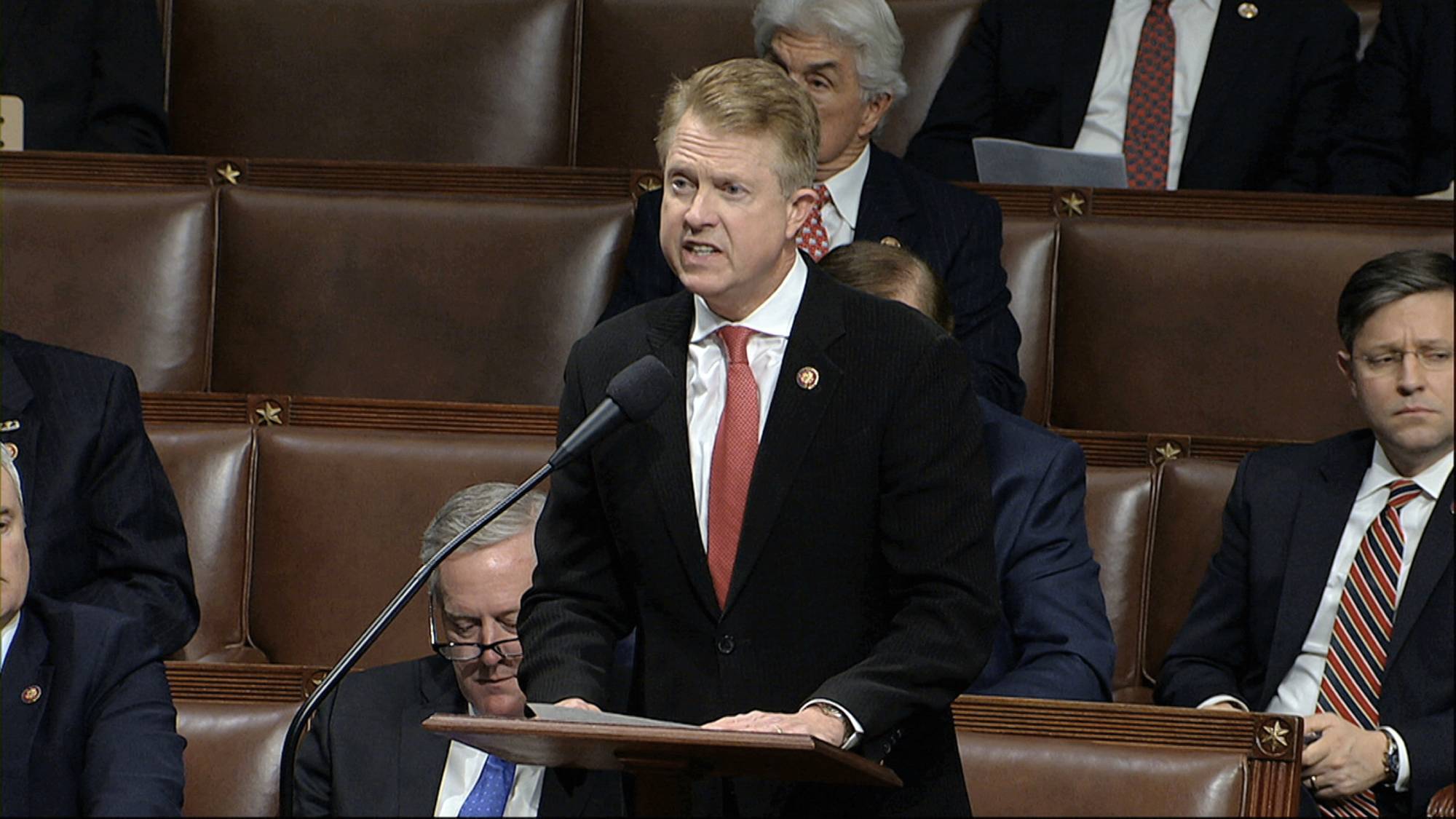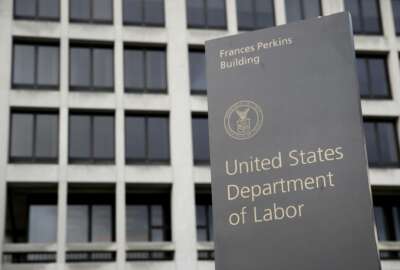
Senate passes resolution blocking Biden admin’s vaccine mandate for health care workers
In today's Federal Newscast, the Senate takes a shot at the Biden administration’s COVID-19 vaccine mandate for health care workers.
To listen to the Federal Newscast on your phone or mobile device, subscribe in PodcastOne or Apple Podcasts. The best listening experience on desktop can be found using Chrome, Firefox or Safari.
- A board crucial to federal employees has a quorum, after a long period of vacancy. The Senate has confirmed two of three nominees for the Merit Systems Protection Board, which, among other things, hears appeals of adverse employment actions. The board has lacked a quorum for more than 1,800 days, about five years. Senators approved Ray Limon and Tristan Leavitt, but didn’t act on the third nominee, Cathy Harris. Leavitt already works at the board as general counsel. The new members face a backlog of nearly 3,700 cases. (Federal News Network)
- The Labor Department is handing out the first tranche of funding to shore up state unemployment systems from identity fraud and cyber attacks. Labor awarded $20 million to three states and the District of Columbia to improve service delivery and equitable access to services. Labor received $2 billion from the American Rescue Plan Act and has been working with teams from the U.S. Digital Service to address long-standing problems with state unemployment systems. Labor’s inspector general estimated that as much as $36 billion was lost to fraud in the unemployment insurance program under the CARES Act in 2020.
- The Senate takes a shot at the Biden administration’s COVID-19 vaccine mandate for health care workers. It passes a largely symbolic measure that would block the Biden administration from enforcing a vaccine mandate for most health care workers both in and out of government. Senator Roger Marshall (R-Kan.) introduced the resolution, which passed along party lines. The resolution still has to make it through the House, but the White House said President Joe Biden opposes the resolution, and plans to veto it if it reaches his desk. The Supreme Court in January upheld the administration’s ability to enforce its mandate.
- President Joe Biden said households can order more free rapid COVID tests at CovidTests.gov starting next week. Biden said households can request another round, even if they’ve already ordered free tests. The Postal Service said it’s delivered more than 270 million free COVID tests so far. That’s more than 68 million packages delivered to households since January. USPS said it’s taking a little over a day for the agency to deliver COVID tests once they’ve been received from the manufacturer.
- Employees at the Pentagon will no longer need to wear masks. After going through the Omicron variant, the Pentagon is once again easing its COVID-19 restrictions on the reservation. Employees are no longer mandated to wear masks. The Pentagon moved its health protection level from Charlie to Bravo. That means office spaces can move from 25% capacity to 50% capacity. Meetings can have up to 49 people and indoor seating will return at the food court. The Pentagon is continuing to offer maximum telework opportunities to its employees when possible. (Federal News Network)
- The Navy is officially kicking off its education task force. The point of the panel is to move Navy and Marine Corps school curriculum closer to strategic guidance set out for 2030. Those plans put a larger focus on near-peer competition. Members of the panel include the leader of the North Dakota University System and the president of the University of Nebraska.
- Jeffrey Specht, who’s been executive director of the DoD Cyber Crime Center is retiring after leading it for three years. Overall, Specht has a combined 27 years of civil service both with DC3 and the Air Force Office of Special Investigations, where he also led as executive director. Specht said he’ll be taking a position with Oracle as its senior director for Government Security.
- HHS is turning to its eighth CIO in the last seven years. The Department of Health and Human Services is bringing in a familiar face to be its new chief information officer. Karl Mathias, the CIO for the U.S. Marshals Service since 2015, will join HHS on March 14, according to an internal email obtained by Federal News Network. Mathias will replace Perryn Ashmore, who was the last permanent CIO and retired in May. Since Ashmore left, Janet Vogel was acting CIO until she retired in December, and Dr. George Chambers has been acting for the last few months. In HHS, Mathias takes over the third largest civilian agency IT budget of more than $6 billion, but a decentralized organization that has lacked long-term stability in the CIO role. (Federal News Network)
- A new audit knocks a major regulatory agency for its supply chain practices. The Federal Deposit Insurance Corporation hasn’t evaluated risks in its supply chain. That’s according to a new report from the Office of the Inspector General. The FDIC spends over $2 billion a year on products and services. The OIG said the agency should document supply chain risks and threats. It also recommends the FDIC do supply chain risk assessments when it makes purchases.
- Agencies hope to make big strides this year with modernizing the security clearance process. The Office of Management and Budget views 2022 as a key year for overhauling the cumbersome security clearance process. OMB’s Jason Miller said “2022 is the most significant, most consequential year for personnel vetting reform. That’s how we’re approaching it.” Miller said OMB and other lead agencies are updating key policies, while closely tracking the development of the National Background Investigation Services software. (Federal News Network)
- IRS needs to be economical as it tackles improving customer experience. The agency wants to reduce it’s reliance on paper, but just making all fourteen-hundred or so forms digital is not practical depending on how taxpayers and businesses use them. Harrison Smith, in the IRS Enterprise Digitalization and Case Management Office, said the agency will sometimes fund small pilot programs, maybe 30 days long and $25,000 in funding. But if the pilot works, they can keep funding it and keep getting results. (Federal News Network)
Copyright © 2025 Federal News Network. All rights reserved. This website is not intended for users located within the European Economic Area.
Eric White
Eric White is news anchor and Federal Drive producer at Federal News Network.
Follow @FEDERALNEWSCAST
Related Stories
(AP Photo/Patrick Semansky)





